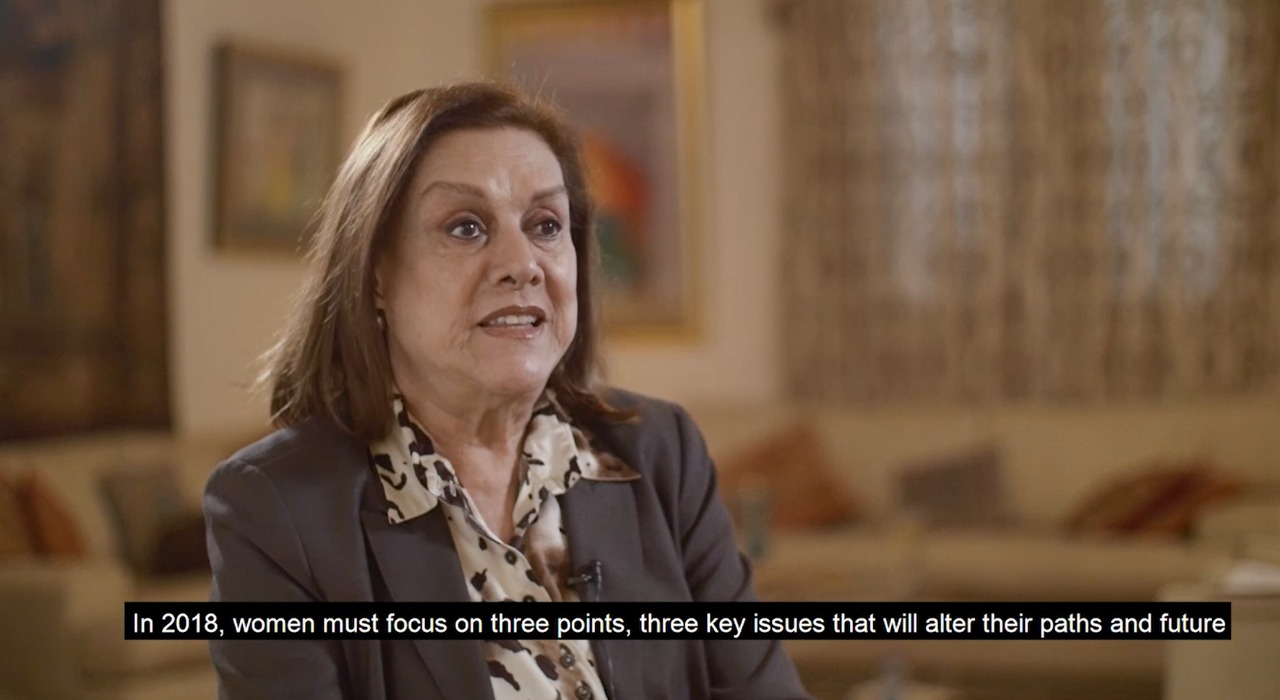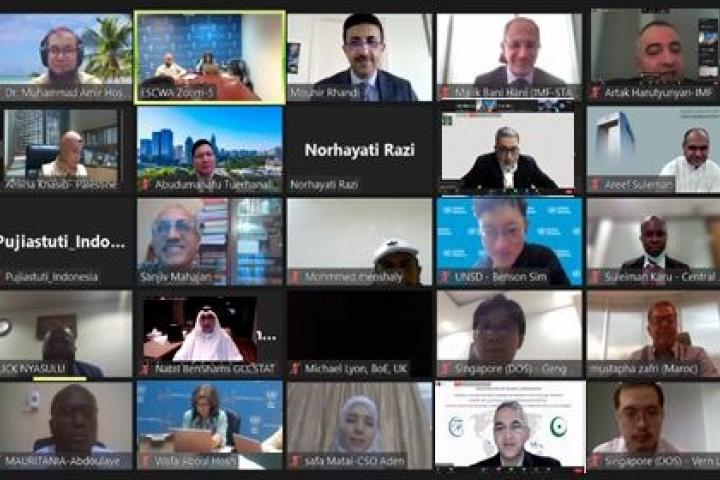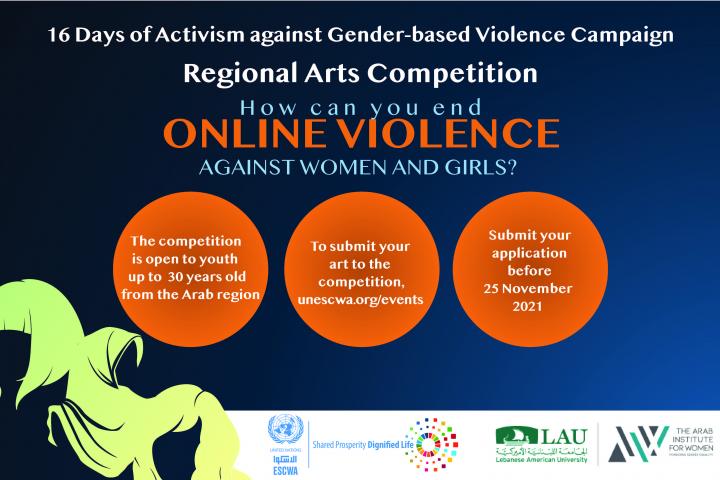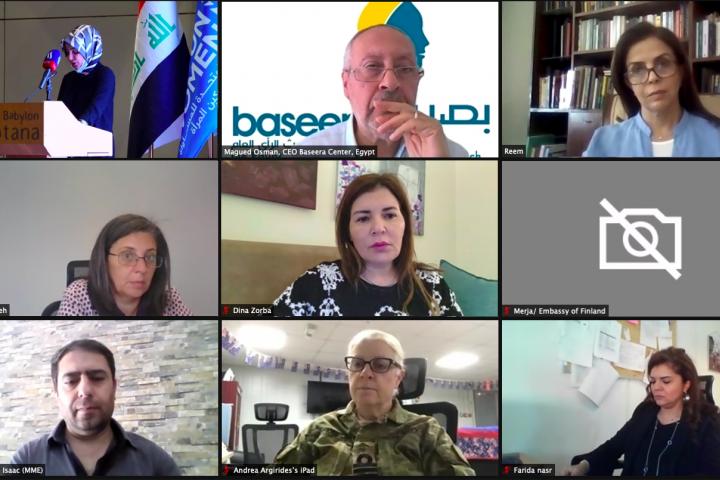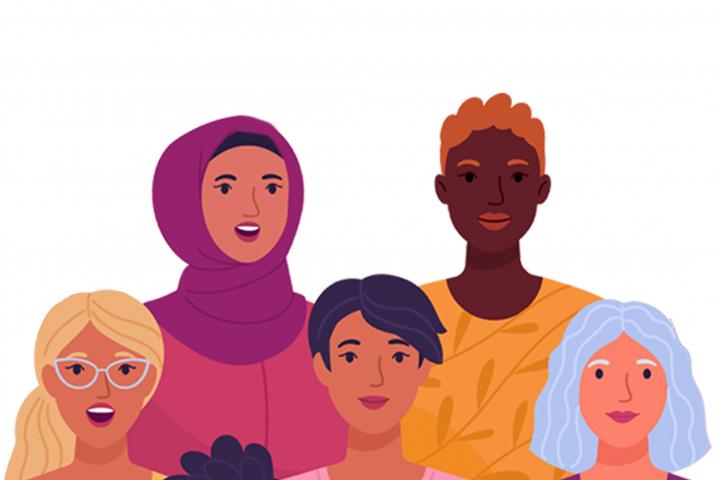The UN Economic and Social Commission for Western Asia (ESCWA) and the American University of Beirut (AUB) have partnered to produce a campaign called “Lazem” using hashtags لازم في 2018# (“we must in 2018”) and #IWD2018—the official hashtag of International Women’s Day marked annually on 8 March.
The Lazem Campaign pays tribute to women who have initiated transformative change within their countries of the Arab region. It consists of a series of short videos of pioneering women that will be shared through 5 March on ESCWA Twitter and Facebook platforms (@UNESCWA).
The videos feature answers to the question: “What can enable women in your country to elicit transformative change in the year 2018?”
As you will discover, the women stem from academia, the judiciary, civil society, technology fields, and the private sector; many are also activists or women’s rights defenders. All the women have positively impacted debates on gender equality in their respective countries.
ESCWA and the AUB Asfari Institute for Civil Society and Citizenship hope that women, men, girls and boys within the region and beyond will share these messages to amplify their ideas and promote change for women everywhere.
Below are the biographies of the women featured in the videos.
Dr. Munira Fakhro (Bahrain)
Dr. Munira Fakhro previously served as an Associate Professor at the University of Bahrain. She was also a visiting scholar at the Middle East Institute at Columbia University and at the Centre of Middle Eastern Studies at Harvard University. She has published three books and multiple studies on the topics of women, civil society, and democracy in the Gulf region.
Dr. Amal Fatani (Saudi Arabia)
Dr. Amal Fatani: Board Member of the Saudi Human Rights Commission and has represented Saudi Arabia at the Office of the United Nations High Commissioner for Human Rights, the Arab League and the United Nations Commission on the Status of Women. She is also a consultant for TATA Consulting Services (TCS), The All Women Business Process and IT Services Center in Saudi Arabia.
Dr. Asma ElSony (Sudan)
Dr. Asma I. ElSony (MD): Founder and Director of Epi-Lab, established in Khartoum in 2005, and Lecturer at Juba University. She is on the Technical Review Panel for the Global Fund to Fight AIDS, Tuberculosis and Malaria and a World Health Organization expert at Geneva and the Regional Office for the Eastern Mediterranean. She is a former president of the International Union against Tuberculosis and Lung Diseases.
Dr. Nadia El Cheikh (Lebanon)
Dr. Nadia El Cheikh: Professor in the Department of History and Archaeology and first-ever woman Dean of the Faculty of Arts and Sciences at the American University of Beirut. She has published extensively on the history of Arab Byzantine relations.
Huda Al Mahmood (Bahrain)
Ms. Huda Al Mahmood: Director of Dar Al Aman Shelter for Abused Women, and has been an activist for the rights of women, children and the family for 30 years.
Justice Somoud Damiri (State of Palestine)
Ms. Somoud Damiri: First-ever woman Chief Prosecutor of Personal Status for the Upper Council of Sharia Courts in the State of Palestine. She is a former legal adviser to the Palestinian ministries of interior and justice.
Justice Kalthoum Kennou (Tunisia)
Ms. Kalthoum Kennou: Judge of the Court of Cassation in Tunis. She is a Commissioner of the International Commission of Jurists and Head of its Tunis office. She is a former president of the Association of Tunisian Judges. In 2014, she ran as an independent candidate for president of Tunisia.
Nayla Al Khaja (United Arab Emirates)
Ms. Nayla Al Khaja: Film director, producer, screenwriter, CEO of Nayla Al Khaja Films and founder of The Scene Club. She is credited with being the first woman film director/producer in the United Arab Emirates. In 2006, she was awarded the title of Best Emirati Filmmaker during the Dubai International Film Festival.
Rawan Salem (Iraq)
Rawan Salem: 15-year-old activist for children's and orphans' rights in Iraq.
Zineb Touimi Benjelloun (Morocco)
Ms. Zineb Touimi Benjelloun: United Nations diplomat. She began her career as Research and Training Officer with the United Nations International Research and Training Institute for the Advancement of Women (INSTRAW). She has served as Assistant Representative at the United Nations Population Fund in Morocco, Regional Programme Director for the Maghreb countries with the United Nations Development Fund for Women (UNIFEM, now known as UN Women), and United Nations Resident Coordinator/United Nations Development Programme (UNDP) Representative in Albania then in Kuwait.
Rasha Jarhum (Yemen)
Ms. Rasha Jarhum: Expert on women, peace and security and is currently an Affiliated Scholar with the American University of Beirut. She is founder of the Peace Track Initiative, established to create a space for the contributions of women, youth and civil society organizations to the peace process in Yemen.
Maria Bou Zeid (Lebanon)
Dr. Maria Bou Zeid is an Assistant Professor and the Chairperson of the Media Studies Department at Notre Dame University-Louaize (NDU). She writes on the role of media in promoting safety and awareness, and also has experience in television production and research.
Rola Roukbi (Syria)
Rola Roukbi is a women’s rights activist, member of the Coalition of Syrian Women for Democracy, and Member of the Board of the Syrian Women’s Network.
Waha Al-Raheb (Syria, Egypt)
Waha Al-Raheb is an Award-winning actress and filmmaker, who studied in Damascus and Paris. She wrote and directed Dream Visions (2003), the first Syrian feature film by a woman, and authored a book on women in Syrian cinema.
